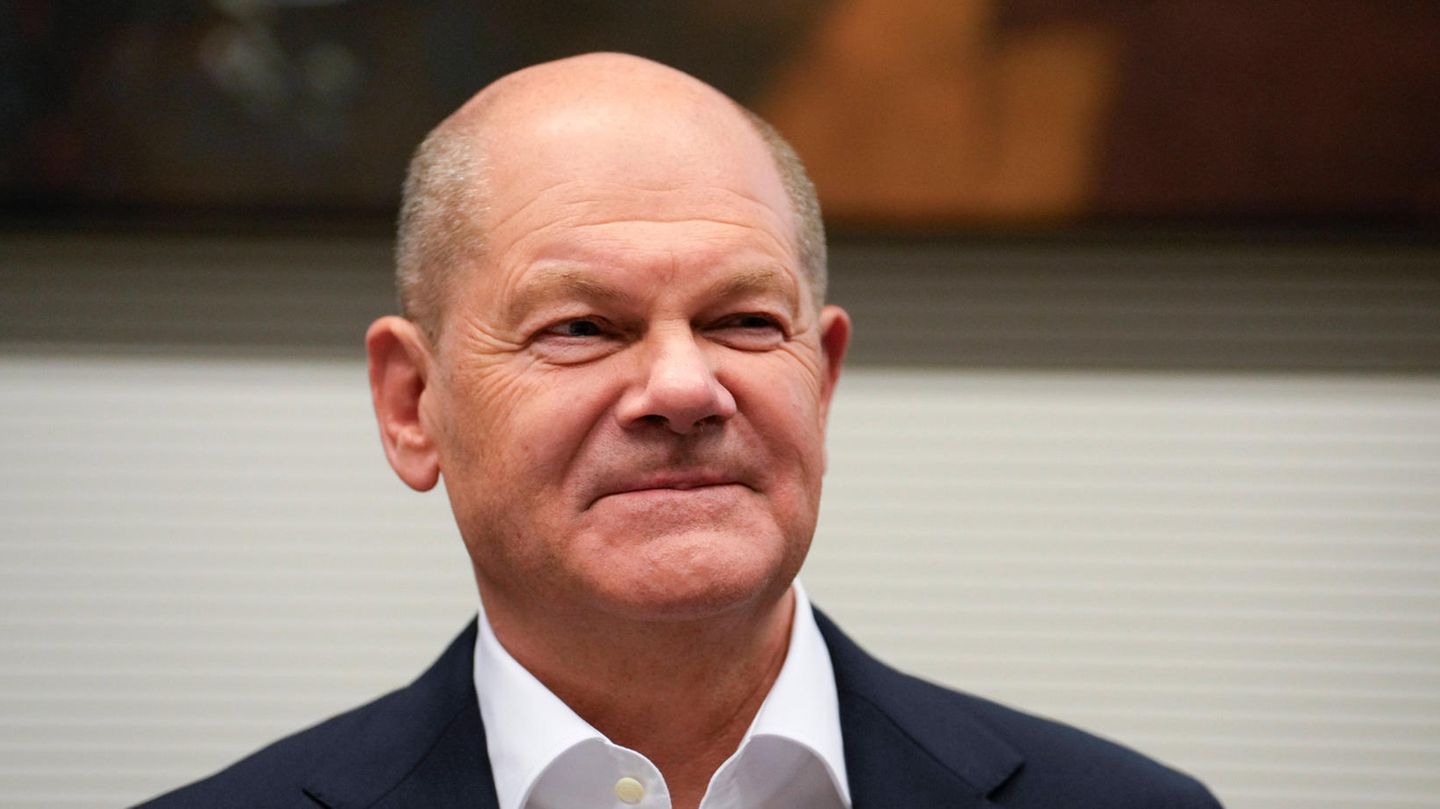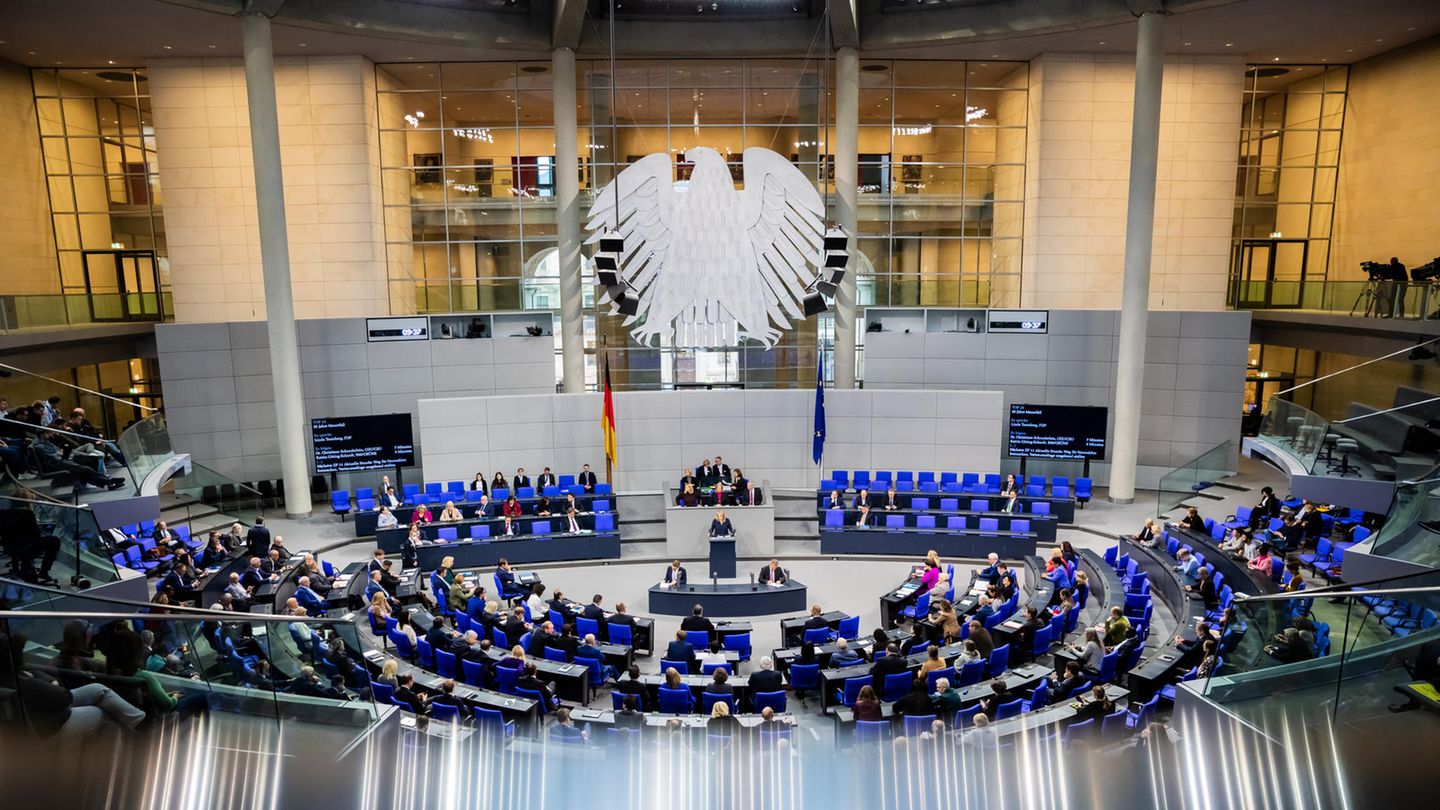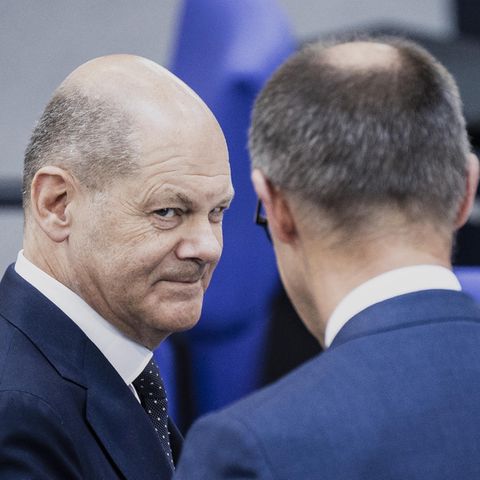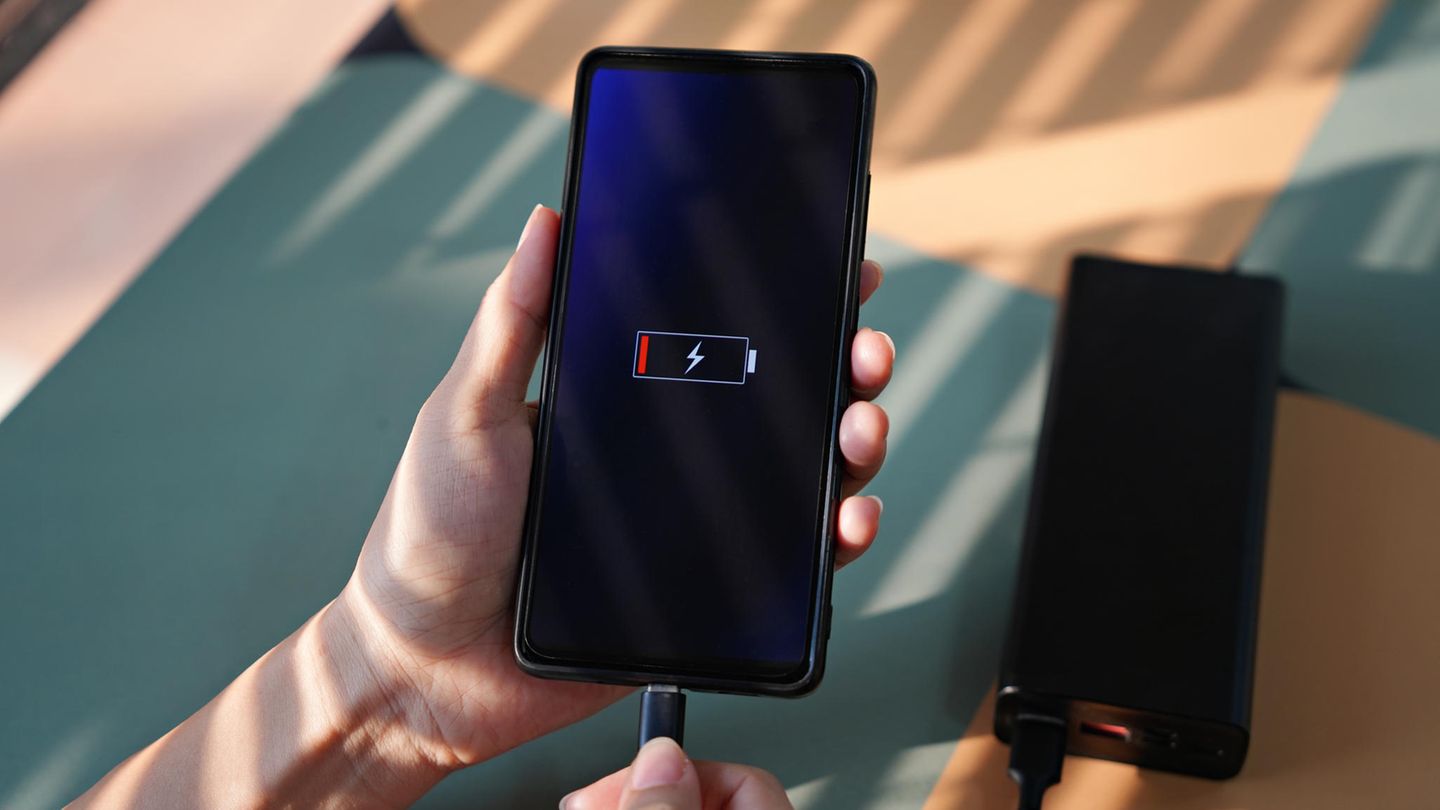Government crisis
Germany is discussing the date of new elections – the Chancellor is concerned about one thing above all
Copy the current link
Vote, but when? The pressure on the Chancellor to ask for a vote of confidence is increasing. There are many possible new election dates in circulation. But Olaf Scholz can take his time.
At least Olaf Scholz is pretty sure how the whole thing is supposed to work. First of all, govern a little more, although without a majority. Friedrich Merz might help out a little with votes here and there. And then, on January 15th, the vote of confidence will be asked, sometime at the end of March the early election of the Bundestag, at the end of which the Chancellor will continue to be called Olaf Scholz.
But it is already apparent, two days after the traffic light burst, that it will be difficult to put this plan into action. This doesn’t just apply to the last part. Scholz did his calculations without Merz – and not just without him. It is quite obvious that (almost) no one in political Berlin thinks anything of the SPD Chancellor’s timetable, with the exception of his party. One of the Social Democrats’ arguments for January 15th: As soon as the government was only in office as a caretaker, the MPs could switch completely into election campaign mode – and parliamentary business would come to a virtual standstill (read more arguments here: “This is how Scholz justifies his schedule “).
Majority of Germans for a quick new election date
Opposition leader Friedrich Merz met this Friday star-Interview set January 19th as a suitable date for the new election – after all, Donald Trump will become the new US President the next day. “To show that Germany will soon have a government capable of acting again with majorities in parliament.” In any case, citizens should go to the polls “as quickly as possible”. Merz was dismissed with this credo on Thursday during his visit to Scholz in the Federal Chancellery, but he can at least be sure of broad support.
Only 34 percent of those surveyed in a representative Forsa survey commissioned by RTL and ntv believe that a new election in March is the better solution. 60 percent of German citizens consider an earlier date as possible to be desirable.
An unusual multi-party coalition has also come together in the Bundestag against the Chancellor’s timetable. What Merz and his Union want is known – Scholz is now even mocked there as “Klebe-Olaf” (CSU regional group leader Alexander Dobrindt). The fact that the AfD would prefer Scholz to vacate the Chancellery yesterday is also no news. And Christian Dürr, the traffic light parliamentary group leader until the day before yesterday, also believes that the Chancellor’s holding on to his office is wrong, as does the BSW group and the Left.
But now there is also timid but increasingly loud opposition from the Alliance 90/The Greens party, which is still in government. Vice Chancellor Robert Habeck made it clear on Thursday evening on “Markus Lanz” on ZDF, barely speaking through the flower, that he also doesn’t think too much of the Chancellor’s plan.
The only thing that is certain so far is that there will be no more federal elections this year – the deadlines in the Basic Law and the Federal Election Act are too tight for that. There will be 13 Sundays next year until the end of March. Almost everyone has already been suggested in the debate, including all the pros and cons. For example, is the state election in Hamburg on March 2nd an obstacle? Not legally, there have been a number of federal and state elections that took place at the same time. Whether this is politically desired is another question.
One thing is particularly important to Olaf Scholz
In uncertain times, rules provide security. So what does the Basic Law say? In order to bring about new elections, the Federal Chancellor – and only the Federal Chancellor – can ask the Bundestag for a vote of confidence. If he loses it (voting is only possible 48 hours after the application), can the Federal President can dissolve parliament within 21 days and call new elections. This must then take place within 60 days. If Olaf Scholz were to ask the vote of confidence tomorrow, there could be a new election at the end of January/beginning of February – Friedrich Merz’s preferred date would therefore hardly be possible.
So it’s not easy to find a suitable date – and the contradictory statements from the Federal Returning Officer don’t make it any easier. From the perspective of the Federal Returning Officer, a new election at short notice would not be a problem, a spokesman for the authority told the DPA news agency on Thursday. We don’t see any particular challenge, even if that were to happen in the short term.
A day later, the “Spiegel” quoted from a letter from the Federal Returning Officer to Chancellor Scholz. “If dates and deadlines fall during the Christmas season or in the period between years, the very short period of 60 days would be significantly shortened,” it says. “This could lead to unforeseeable risks at all levels, especially at the community level, and make procurement measures virtually impossible to implement.” Because an election like this has to be organized somehow. This starts with the parties drawing up the lists (for which there are also deadlines) and ends with recruiting volunteer election workers. Ruth Brand wrote that she sees “a high risk that the cornerstone of democracy and trust in the integrity of the election could be violated.” In short: Scholz should take his time with the question of trust (read more about it here).
The FDP ministers are gone – except for one: This is what the new cabinet looks like

Olaf Scholz (SPD) will remain head of government as Chancellor after the end of the traffic light coalition. However, Scholz has announced that he will soon ask the Bundestag for a vote of confidence
© Bernd Elmenthaler / Imago Images
Ultimately, it is the Chancellor who alone can decide when to ask the vote of confidence and thus possibly trigger a new election in the Bundestag (if Friedrich Merz doesn’t take his office away from him with a constructive vote of no confidence – read here about the path to a new one Chancellor can lead). But one thing is clear: the pressure on him to make a quick decision is likely to continue to increase – from Friedrich Merz, but also from his coalition partner, the Greens. After two days of discussion, Scholz backed away from his plan at least a little on Friday afternoon. “We should discuss the date as calmly as possible,” he said on the sidelines of the EU summit in Budapest on Friday. “For me, we have a big democratic celebration here, and that works best when everyone comes to the party together.”
Losing a vote of confidence on January 15th, early elections at the end of March – that is apparently negotiable for the SPD politician. The last point of his plan is most important to him anyway: that the Chancellor will ultimately be called Olaf Scholz again.
Transparency note: The star is part of RTL Deutschland.
Collaboration: Florian Schillat
Source: Stern
I have been working in the news industry for over 6 years, first as a reporter and now as an editor. I have covered politics extensively, and my work has appeared in major newspapers and online news outlets around the world. In addition to my writing, I also contribute regularly to 24 Hours World.





